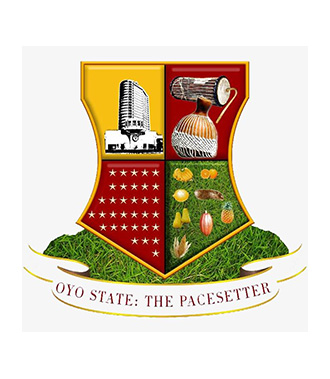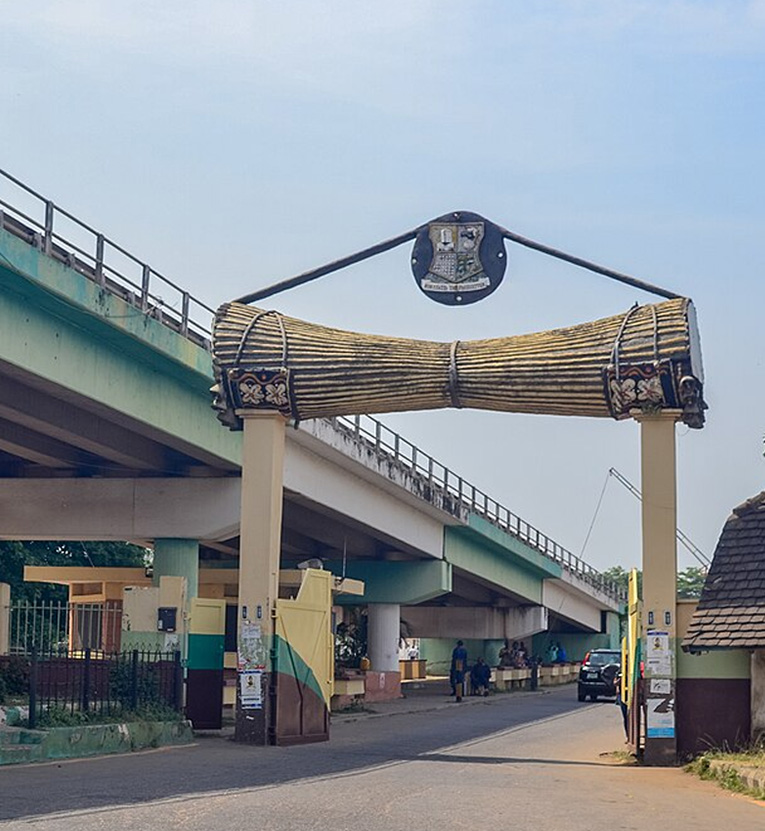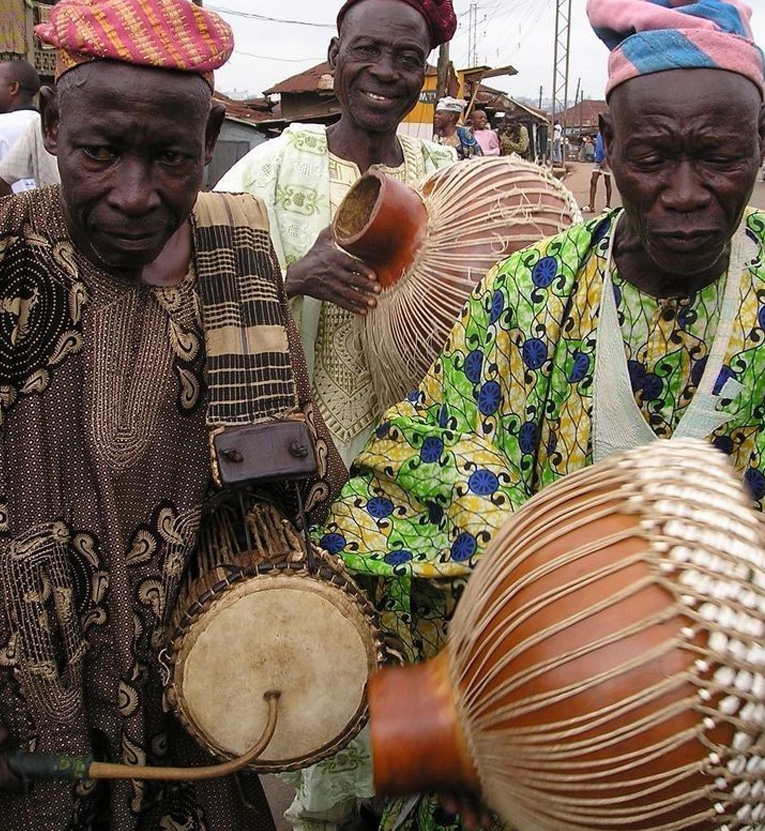Thank You!
Your submission has been sent.
Oyo

People
Situated in the South-West geopolitical zone of Nigeria, Oyo State was one of the three states carved out of the former Western State of Nigeria in 1976. It was established on February 3, 1976, by the regime of the late General Murtala Mohammed. Oyo State comprises 33 Local Governments and 29 Local Council Development Areas. With a population of approximately 6 million, it is predominantly inhabited by the Yoruba people.
The capital city, Ibadan, ranks as the third most populous city in Nigeria, with a population of 3,649,000 as of 2021. Known as the “Pace Setters” state, Oyo is renowned for being the birthplace of many firsts in Nigeria, with numerous establishments, including higher institutions, infrastructures, and businesses, originating in the state before spreading to other parts of the country. Spanning a landmass of 28,454 square kilometers, Oyo State is bordered by Ogun State to the south, Kwara State to the north, the Republic of Benin to the west, and Osun State to the east.
Religion plays a significant role in the lives of the people of Oyo State, with Islam and Christianity being the dominant faiths. This religious diversity further enriches the cultural landscape of the state, as evidenced by the various religious festivals and ceremonies that take place throughout the year.
Culture
Culture plays a significant role in the vibrant tapestry of Oyo State, reflecting its rich history and traditions. The state is home to diverse ethnic groups, including the Ibadans, Ibarapas, Oyos, Oke-Oguns, and Ogbomosos, each contributing to the cultural mosaic of the region.One of the notable cultural landmarks in Oyo State is the University of Ibadan, the first university in Nigeria, founded in 1948. The institution has played a huge role in the educational development of the country, it also serves as a cultural hub where ideas are exchanged, and traditions celebrated.
The annual Sango Festival is a highlight of Oyo State’s cultural calendar. Held in honor of Sango, the thunder and fire deity and the third king of the Oyo Empire, this festival marks the beginning of the Yoruba Traditional New Year. It is deeply rooted in the social, religious, and political identity of the state, attracting locals and visitors alike. Another significant festival is the Oke Ibadan, celebrated annually and steeped in ancient traditions. This festival, which translates to “hill of Ibadan,” commemorates the original site of the city, believed to have been located on a hill. It serves as a reminder of the city’s origins and is celebrated with great fervor by the local community.
The New Yam Festival is yet another important cultural event in Oyo State, symbolizing the end of the farming season and the beginning of a new one. This festival is marked by feasting, cultural dances, and communal gatherings, highlighting the importance of agriculture in the region’s economy and cultural identity.
Culture plays a significant role in the vibrant tapestry of Oyo State, reflecting its rich history and traditions. The state is home to diverse ethnic groups, including the Ibadans, Ibarapas, Oyos, Oke-Oguns, and Ogbomosos, each contributing to the cultural mosaic of the region.One of the notable cultural landmarks in Oyo State is the University of Ibadan, the first university in Nigeria, founded in 1948. The institution has played a huge role in the educational development of the country, it also serves as a cultural hub where ideas are exchanged, and traditions celebrated.
The annual Sango Festival is a highlight of Oyo State’s cultural calendar. Held in honor of Sango, the thunder and fire deity and the third king of the Oyo Empire, this festival marks the beginning of the Yoruba Traditional New Year. It is deeply rooted in the social, religious, and political identity of the state, attracting locals and visitors alike. Another significant festival is the Oke Ibadan, celebrated annually and steeped in ancient traditions. This festival, which translates to “hill of Ibadan,” commemorates the original site of the city, believed to have been located on a hill. It serves as a reminder of the city’s origins and is celebrated with great fervor by the local community.
The New Yam Festival is yet another important cultural event in Oyo State, symbolizing the end of the farming season and the beginning of a new one. This festival is marked by feasting, cultural dances, and communal gatherings, highlighting the importance of agriculture in the region’s economy and cultural identity.
Economy
The economy of Oyo State is primarily driven by agriculture, making it a significant contributor to Nigeria’s economic landscape. The state boasts a diverse range of agricultural products, including yams, corn (maize), cassava (manioc), beans, millet, plantains, tobacco, cocoa, palm oil, palm kernels, cotton, kola nuts, indigo, and various fruits. These agricultural products sustain the local economy and contribute to the national food supply and export markets.Oyo State is known for its industries, which play a vital role in its economic development. These industries include mat making, wood carving, sheep and goat skin leatherworking, cotton weaving, dyeing, and spinning. The artisans involved in these industries produce high-quality goods that are in demand both locally and internationally.
The state’s largest city, Ibadan, is a hub for industrial activities in Oyo State. It houses several manufacturing establishments, including a brewery, a publishing business, a tobacco processing factory, a wood and steel furniture factory, and an assembly line for motor vehicles. These industries provide employment opportunities for the local population and contribute to the state’s gross domestic product (GDP).Oyo State is home to several research institutes and educational institutions that support its economic development. The Federal Agricultural Research Institute, the International Institute of Tropical Agriculture, and the Cocoa Research Institute of Nigeria are all located in Ibadan. These institutions conduct research and development activities aimed at improving agricultural productivity, enhancing food security, and promoting sustainable development in the state.
Politics
Seyi Makinde of the People’s Democratic Party (PDP) currently serves as the governor of Oyo State, having won the governorship election with a 17% margin. The state follows the three-arm governmental structure outlined in the 1999 Constitution of Nigeria, with Seyi Makinde as the governor and Barr. Bayo Lawal as the deputy governor. Makinde assumed office on May 29, 2019, following his victory in the March 9, 2019, election. In the legislative arm, Rt. Hon. Debo Ogundoyin is the current Speaker of the Oyo State House of Assembly.
The role of traditional institutions in Oyo State politics cannot be overlooked. Traditional rulers wield considerable influence and are often sought after, to mobilize support during elections.
Past governors from 1990 include Col. Sasaenia Oresanya (Military, 27th July 1988 – August 1990), Col. Abdulkareem Adisa (Military, 3rd Sep 1990 – Jan 1992), Chief Kolapo Olawuyi Ishola (Social Democratic Party, SDP, 02-Jan 1992 – 17-Nov- 1993), Dr. Lam Adesina (Alliance for Democracy, AD, 29-May 1999 – 28-May 2003), Rashidi Adewolu Ladoja(People Democratic Party, PDP, 29-May- 2003 – 28-May 2007), Christopher Alao-Akala (Governor De-facto PDP, 12-Jan 2006 – 07-Dec 2006; PDP, 29-May 2007 – 29-May 2011), Abiola Ajimobi (Action Congress of Nigeria, 29-May 2011 – 29-May 2019), and Oluwaseyi Abiodun Makinde (PDP, 29-May 2019 – Incumbent).
pcl. State Performance Index
The pcl. State Performance Index provides a comprehensive assessment of Abia State's overall performance, combining primary survey data with data from credible sources. In summary, Abia State achieved a PSPI Score of -0.32, ranking 36th out of 37 states with a BBB rating, indicating Under Performance.
Summary of Analysis
Abia State’s assessment reveals a sub-optimal utilisation of its socioeconomic potential, compounded by the pessimistic perspectives voiced by its citizens in our survey. This combined evaluation results in Abia State receiving a BB rating, indicating “under-performance,” and securing the 36th overall ranking. Abia State requires significant improvement across all other indicators except for literacy rate and the capital expenditure to budget ratio. Additionally, effective management of citizens’ perceptions of performance is crucial. Abia State should prioritise strengthening public institutions, investing in infrastructure, and fostering human capital development.

Outlook for Oyo State: Positive
The outlook for Abia State remains positive, contingent upon several key factors:
1. Political Shift: The recent election victory of Mr Alex Otti from the Labour Party heralds a promising change in Abia State’s political landscape. The public’s optimism suggests a heightened focus on people-centric governance, potentially translating into improved overall administration.
2. Private Sector Expertise: Governor Alex Otti’s background in the private sector, notably as a seasoned banker, injects valuable expertise into the state’s leadership. While promising, potential conflicts with the public service require careful management to ensure effective collaboration and governance.
3. Innovative Local Governance: A groundbreaking shift in local governance sees accomplished individuals and former military leaders appointed as mayors, a departure from traditional political appointments. While not constitutionally mandated, this innovative approach aims to engage elites in government, fostering efficient local administration and promising prosperity.
4. Infrastructural Drive: The prioritisation of major road projects, including the Aba-Port Harcourt road constructed by Julius Berger, underscores the commitment to transformative infrastructure. Well-connected roads are vital for trade and hold the potential to drive holistic state development.
5. Resource Optimisation: Abia State possesses untapped resources, including gas reserves and a skilled workforce. Effective utilisation of these assets is a key driver for growth and could significantly impact the state’s economic outlook.
While the current positive outlook is a good starting point for Abia state, it is crucial to recognise and confront specific challenges that have the potential to hinder further progress. These challenges include:
1. Early Politicking for the Next Elections: Due to the Labour Party movement in the Southeast and the need for the ruling party at the centre to gain more grounds, politicians and leaders in Abia might become preoccupied with preparing for the next elections soon after taking office. This early focus on political campaigns and securing future positions can divert attention and resources away from governance and addressing the immediate needs of the state’s residents. It may result in less effective governance and slower progress on important issues.
2. Ongoing Agitation in the Southeast: The Southeast region of Nigeria has experienced agitation and unrest in recent years, with various groups and movements expressing their grievances and demands. If not well managed, these ongoing tensions and protests could disrupt peace and stability in Abia State. It might create an environment of uncertainty that hampers economic activities, investments, and overall development efforts. Therefore, effectively addressing and managing these regional tensions is essential for continued progress in the state
Recommendations for Sustainable Progress
To ensure sustainable progress and growth and move Abia State to a positive outlook, the following recommendations should be considered:
1. Enhanced citizen Engagement: Abia State should prioritise engaging with its citizens through regular town hall meetings, consultations with key stakeholders, and transparent communication. Involving citizens in policymaking is essential for effective governance.
2. Political Solution for Agitation: The state government should engage with the federal government to find a lasting political solution to the ongoing agitation in the Southeast, fostering peace and stability.
3. Infrastructure Revolution: Commence an infrastructure revolution in the state using creative means such as concessions, public-private partnerships (PPPs), and project finance. This will enhance the state’s physical and economic development.
4. Strengthen Public Institutions: Pay attention to the traditional institutions and public service to ensure effective service delivery for the benefit of the public. Strengthening institutions is crucial for governance and development.
5. Maximise Domestic Trade: Improve tax reforms, enhance market access and development, and invest in transportation infrastructure to maximise opportunities for domestic trade. This will stimulate economic growth and create employment opportunities.
6. Inter-State Collaboration for Progress: Collaborate with other state governments across Nigeria, drawing lessons from states like Akwa Ibom, Jigawa, Kwara, Gombe, and Kogi in various areas such as infrastructure development, job creation, financial inclusion, public institution strengthening, and the preservation of social and cultural values. Learning from the experiences of successful states can help Abia State bridge gaps and achieve its development goals.
By implementing these recommendations and focusing on the identified areas of improvement, Abia State can further solidify its position as a prosperous and stable state within Nigeria, contributing to its continuous growth and development.

Fact Sheet
Internally Generated Revenue
18.65 B
Y-o-Y
-5%
Per Capital Income
943,526.99
Y-o-Y
10
PMS Price
643.13
Y-o-Y
248%
Budget Size
160.52 B
Y-o-Y
9
Capital Expenditure
45.42 B
Y-o-Y
4%
Operating Expenditure
54.88B
Y-o-Y
1
Inflation Rate
29%
Y-o-Y
32%
Unemployment Rate
50.10%
Y-o-Y
5
Poverty Rate
10.7%
Y-o-Y
-65%
Infant Mortality Rate
115
Y-o-Y
37%
Literacy Rate
89
Y-o-Y
-7%
FAAC Allocation
82.95 B
Y-o-Y
35%
Data Source
National Bureau of Statistics:
▪ FAAC Allocation – 2022
▪ Inflation rate – 2022 – 2023
▪ PMS Price – 2022/23 Q4
▪ GDP – 2021 & 2022
▪ Mineral resources The World Bank
▪ Ease of doing business report
Kingmakers State of States Report
▪ Population
▪ Employment rate
▪ Mortality rate
▪ Literacy rate
Statista
▪ Unemployment Rate – 2020
NGF Digital Repository
▪ Capital and Operating Expenditure
▪ IGR
▪ Domestic and Foreign Debts
State Government Websites
▪ Budget Sizes – 2022 & 2023
Entering your name, email address and clicking “Submit” means you agree to receive updates about the work we do at pSPI. Phillips consulting will never spam you. Please, click here to learn more about how we protect your privacy.
Join us in shaping your state's future! Participate in PCL surveys to contribute to the State Performance Index report. Your input drives positive change.
Error: Contact form not found.